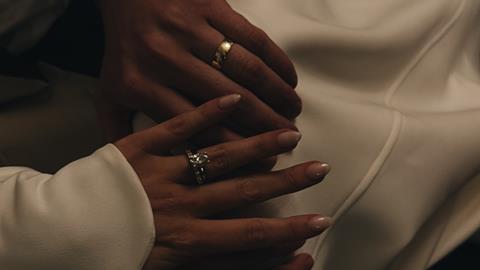Veronica Zundel asserts that much of our so-called Christian view and practice of marriage is more cultural than biblical
“It is a truth universally acknowledged, that a single man in possession of a good fortune must be in want of a wife.” So begins Jane Austen’s most popular novel, Pride and Prejudice. The statement stems from a time when, at least for the middle and upper classes, a man at a certain stage of life was expected to ‘take’ a wife, rather as he might ‘take’ a house in Bath for the season. She would of course be expected to provide an heir (and ideally a spare) for his ‘good fortune’, and to manage an elegant house where he might entertain his friends.
For the ‘lower’ classes, things were somewhat different, but marriage for love was still a luxury. A farmer or artisan would need a healthy wife to help with his workload, as well as to give him children, and it was quite acceptable to ‘try her out’ before tying the knot – in Victorian Scotland, nine out of ten brides were pregnant by their wedding day (as was my own grandmother).
Marriage in the Bible
If we think that these ‘traditional’ models of marriage are any closer to the biblical model than our contemporary practice of ‘serial monogamy’, we are much mistaken. For a start, there are several models of marriage in the Bible: strict monogamy, a husband with two wives (Jacob) and a couple of concubines, or, in the case of King Solomon, 300 wives (many married to cement foreign alliances) and 700 concubines. Not to mention the practice where a man had to marry his brother’s widow to have children by her in his brother’s name.
As far as true marriage goes, it is the gay community who are leading the way
True, Jesus, when asked by the Pharisees: “Is it lawful for a man to divorce his wife for any and every reason?” (Matthew 19:3) recalled them to the original, creational marriage formula from Genesis 2:24: “a man leaves his father and his mother and is united to his wife, and they become one flesh”. But note three things:
1. He said this in response to a heated discussion on how trivial a reason a man could cite for divorcing his wife (ie abandoning her to destitution) – in other words their question was still in the context of a man ‘taking’ a wife.
2. This was not in any way a pronouncement on whether two people of the same sex could marry or not – in his first-century context this was not a possibility Jesus could ever have envisaged. Our context two millennia later is very different and we have to rethink our interpretation.
3. Very few commentators seem to have noticed just how radical the Genesis original, or Jesus’ reassertion of it, was. “A man leaves his father and mother” – what? This was simply not how things worked. The reality was that the woman left her family and moved in with her husband’s family. And so it has been throughout history. Yet Genesis states the exact opposite: that it is the man who leaves his family to be joined to his wife. If we truly followed this biblical model, surely on marriage the man would take his wife’s surname and not the other way around?
And another thing: if we take Genesis 1 literally, Adam and Eve weren’t actually married. Where is the account of their wedding? And indeed, in much of human history, documentation has been the least part of a marriage. In the Middle Ages, after the Black Death, there was such a shortage of priests that most ordinary couples married ‘without benefit of clergy’, ie they simply lived together and everyone regarded them as married.
Emphasising covenant
A Christian couple I know well lived together for over 30 years, had a son and then split up after spending too much time together during lockdown. Would being legally married have kept them together? I doubt it, and though it would have made some aspects of the break-up (financial arrangements) simpler, it would made others harder.
We could say, then, that the essentials of a marriage are a public declaration that these two individuals are now a couple, and that they intend to stay together for life. This places the emphasis on marriage as a covenant, not a legal contract. We would then have to admit that as far as true marriage goes, it is the gay community who are leading the way. While heterosexuals often live together for years before they can afford a ‘proper’ wedding, homosexuals are queuing up to make a public declaration of a relationship and commitment they may have had to keep secret for decades.
Surely the essentials of marriage are that it is a public, free joining of equals. The Quakers have it right, with their simple ceremony in a normal meeting. All else is culture.


































No comments yet